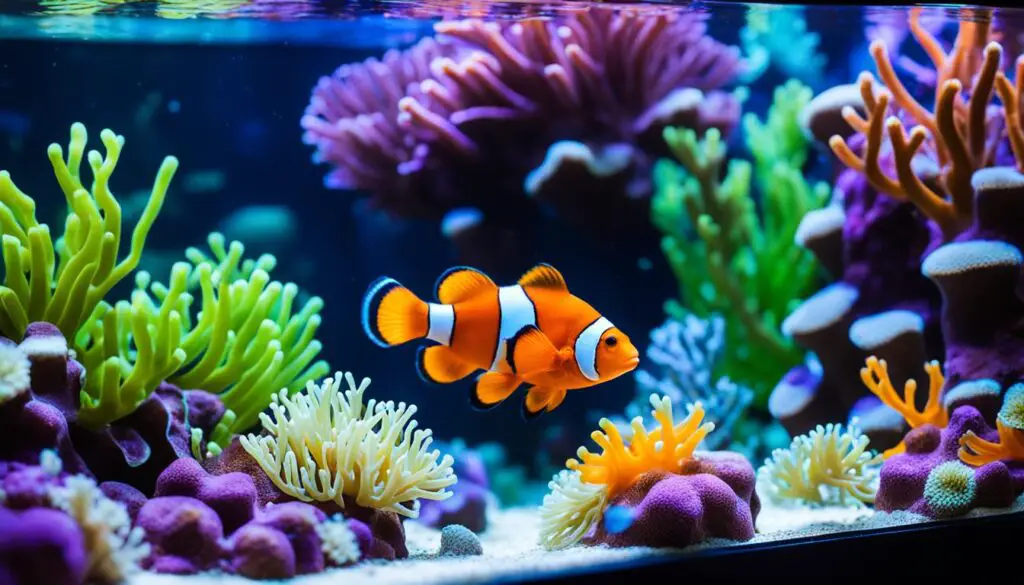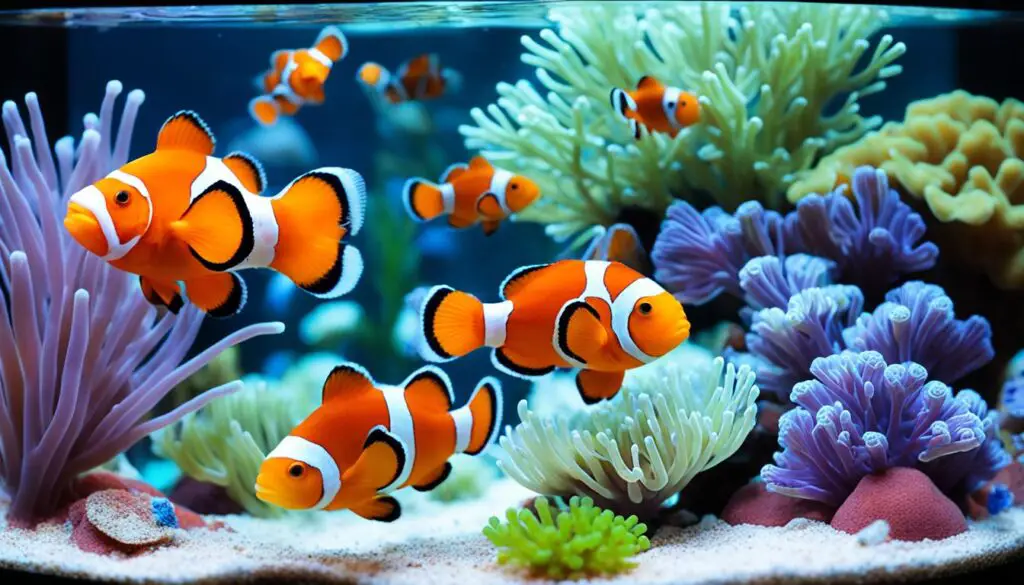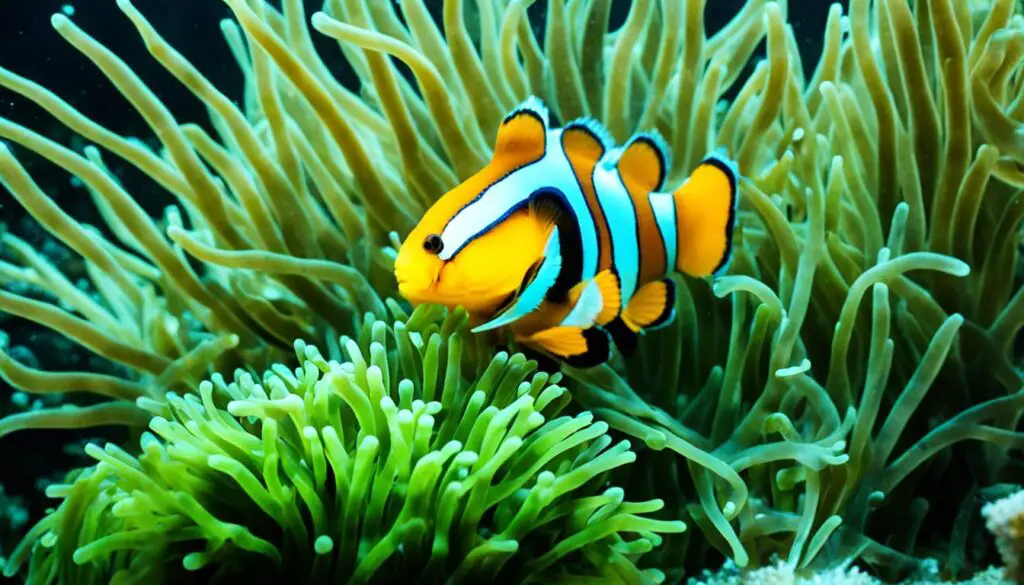Are Giant Octopus Dangerous
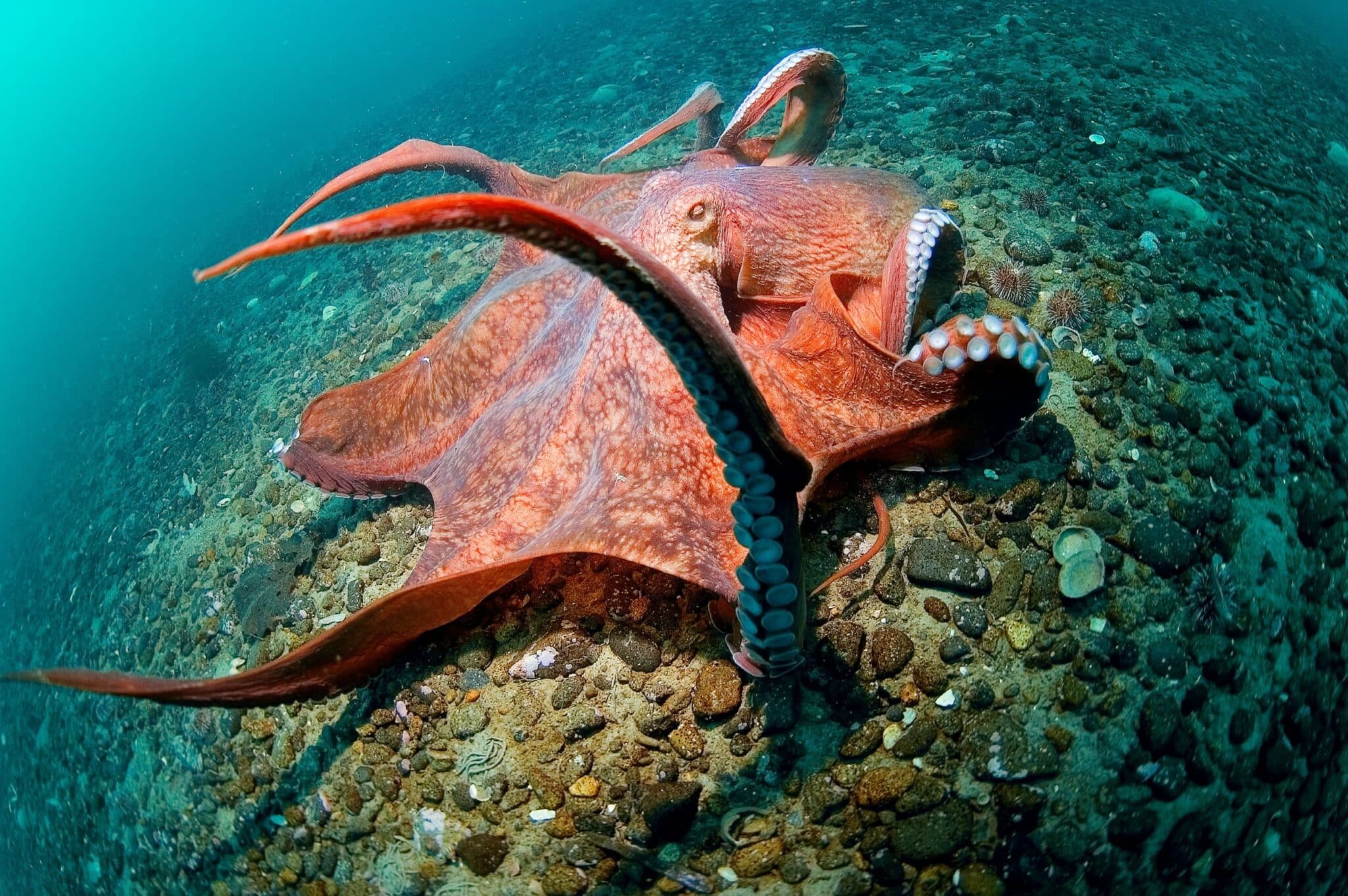
Introduction
Are Giant Octopus Dangerous: In this exploration of the giant octopus’s potential danger, we embark on a journey into the realm of marine biology, delving into the anatomy, behavior, and interactions of these astonishing creatures. With their remarkable intelligence and adaptability, giant octopuses have long captured the imaginations of scientists and storytellers alike. Yet, their elusive nature has left much about them shrouded in mystery.
Throughout this investigation, we will uncover the fascinating traits that make giant octopuses unique, from their astonishing camouflage abilities to their complex hunting strategies. We will also examine instances where encounters with these creatures have raised questions about their potential threat to humans and other marine life.
Ultimately, this exploration seeks to unravel the truth about giant octopuses, shedding light on whether they are indeed dangerous or if their reputation as sea monsters is merely a product of myth and misconception. Join us as we navigate the depths of the ocean to demystify these captivating cephalopods and gain a deeper understanding of their place in the underwater world.
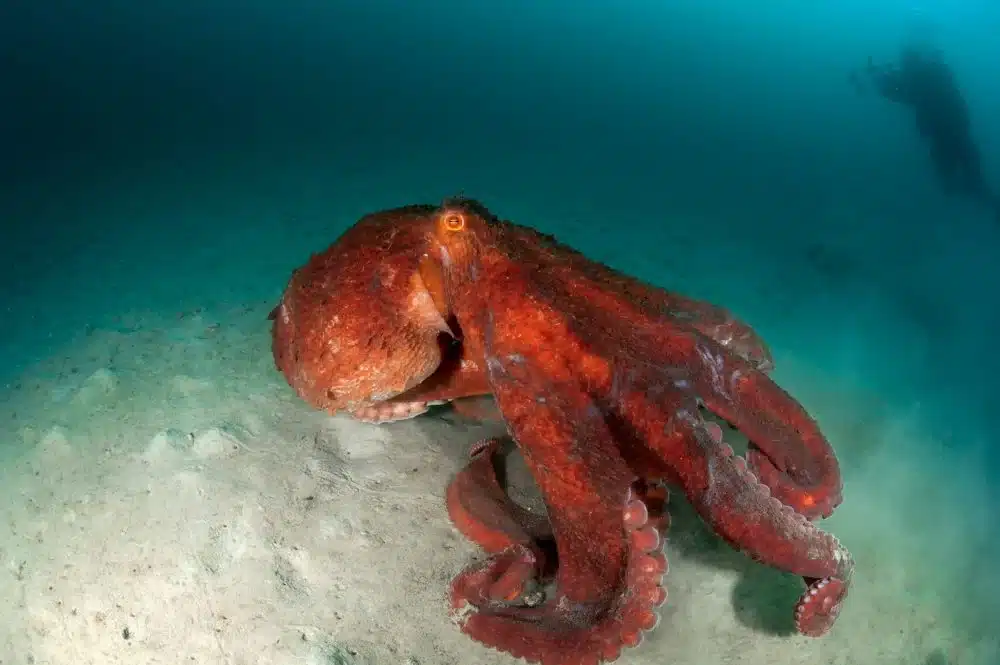
Will giant octopus attack humans?
Humans aren’t food
But the truth is that octopuses, no matter how big they are, don’t prey on humans. In fact, no cephalopod species—even the massive squids of the deep—are interested in humans as food. However, all octopuses are capable of defending themselves against anything or anyone that might try to harm them.
Giant octopuses are generally not known to attack humans. These marine creatures, although impressive in size and strength, are typically reclusive and elusive, preferring to avoid human encounters. They are more likely to employ their remarkable camouflage abilities and intelligence to evade potential threats rather than engaging in aggressive behavior.
Instances of giant octopus attacks on humans are exceedingly rare and usually occur only in situations where the octopus feels cornered or threatened, and it perceives no other means of escape. Even then, such confrontations are more likely to be defensive in nature, with the octopus using its strength and agility to protect itself.
It’s important to note that humans are not natural prey for giant octopuses. These cephalopods primarily feed on crustaceans, small fish, and other marine creatures, making them less inclined to view humans as a food source. In fact, they tend to be opportunistic hunters, ambushing their prey rather than actively pursuing it.
While giant octopuses are awe-inspiring and powerful creatures, they are not typically a threat to humans. Respect for these magnificent animals and their natural behaviors, combined with responsible and cautious interactions when encountering them in their habitat, can help ensure harmonious coexistence between humans and these fascinating denizens of the deep sea.
What to do if a giant octopus grabs you?
Worst-Case Wednesday: How to Escape From a Giant Octopus
- Pull away quickly.
- Do not go limp.
- Prevent the octopus’s arms from wrapping around your arms.
- Peel the suckers from your body.
- Detach the octopus from its anchor.
- Turn somersaults in the water.
- Swim towards the surface.
Encounters with a giant octopus in which it grabs a human are extremely rare, as these creatures typically avoid human interaction. However, if you do find yourself in such a situation, it’s essential to remain as calm as possible and follow some key steps:
- Stay Calm: Panicking can exacerbate the situation. Remember that the octopus is not likely to be attacking you intentionally, but rather reacting out of fear or self-defense.
- Try to Stay Still: Sudden, frantic movements may agitate the octopus further. If possible, gently try to loosen its grip without making rapid or aggressive motions.
- Protect Your Face and Eyes: Keep your face away from the octopus’s beak, which is its primary means of offense. Avoid eye contact, as some octopuses may attempt to strike at the eyes.
- Signal for Help: If you’re not alone, alert any nearby divers or companions to your situation.
- Wait for Release: In many cases, the octopus will release its grip once it perceives the threat has passed. This might take some time, so patience is crucial.
- Seek Medical Attention: Even if the octopus releases you without causing significant harm, it’s advisable to seek medical evaluation to ensure no hidden injuries or infections.
Remember that incidents involving giant octopuses grabbing humans are extremely rare, and the best approach is to avoid provoking or startling these creatures in their natural habitat. Respecting their space and behaving responsibly while diving or exploring the ocean can help prevent such encounters altogether.
Can octopus be dangerous to humans?
In terms of toxicity, octopuses do not pose so much of a threat to humans. Some octopuses may be poisonous, but only a handful cause actual danger to humans. Out of the 300 species of octopuses in different oceans around the world, only four species of blue-ringed octopus pose a real threat to humans.
Octopuses are not typically dangerous to humans. While they are fascinating and intelligent marine creatures, they are generally docile and prefer to avoid human interactions whenever possible. Here are some reasons why octopuses are not considered a significant threat to humans:
- Predatory Behavior: Octopuses primarily feed on small prey such as crustaceans, fish, and mollusks. They are not naturally inclined to view humans as prey, given the significant size difference.
- Defensive Reactions: If an octopus feels threatened or cornered, it may display defensive behavior, such as changing color or squirting ink as a diversion. In very rare cases, they may use their beak to bite if they perceive no other means of escape, but this is exceedingly uncommon.
- Avoidance Behavior: Octopuses tend to be reclusive and solitary animals, often hiding in crevices or camouflaging themselves to avoid potential threats. They are more likely to flee from humans than engage with them.
- Non-Aggressive Nature: Octopuses do not have a reputation for being aggressive predators towards humans. In fact, they are more likely to engage in complex problem-solving and exploratory behaviors.
While it’s always important to exercise caution and respect when encountering any wild animal, interactions between octopuses and humans are typically benign. Responsible diving and snorkeling practices, such as not disturbing their habitats or provoking them, can help ensure a peaceful coexistence between humans and these remarkable cephalopods.
Are giant octopus friendly?
Despite its impressive size, the giant Pacific octopus poses little threat to humans; it typically avoids divers. However, a bite from a giant Pacific octopus contains toxic venom. It is known to cause harm to humans but is not fatal if treated in a timely fashion.
The question of whether giant octopuses are friendly is a topic of fascination and debate among marine biologists and ocean enthusiasts. Giant octopuses, often portrayed as mysterious and elusive creatures, inspire both awe and curiosity. While they don’t exhibit friendliness in the way humans do, it’s important to understand their behavior in the context of their environment.
Giant octopuses are highly intelligent and solitary creatures, inhabiting the depths of the ocean. Their interactions with humans are limited, making it difficult to draw definitive conclusions about their friendliness. They are known to be curious, displaying a keen interest in their surroundings. Some encounters with divers and submersibles have shown octopuses approaching and even interacting with humans, seemingly out of curiosity rather than aggression.
However, it’s crucial to remember that giant octopuses are wild animals, and their actions can be unpredictable. They are equipped with powerful beaks and strong arms lined with suction cups, which they use for hunting and defense. In certain situations, they may perceive humans as threats and react defensively.
While giant octopuses may not be inherently friendly, they are complex and intriguing creatures of the deep sea. Interactions with them should always be approached with caution and respect for their natural behaviors and habitats.
Do Giant Pacific Octopus have poison?
Q. Is the Giant Pacific Octopus’ venom hazardous to humans or just other marine wildlife? A. Yes, the venom is hazardous to both humans and marine life – hazardous, but not deadly to humans.
The Giant Pacific Octopus, scientifically known as Enteroctopus dofleini, does not possess venomous or poisonous characteristics like some other marine animals, such as certain species of jellyfish or cone snails. Instead, the primary defense mechanism of these magnificent creatures lies in their impressive ability to camouflage and their powerful beaks.
The Giant Pacific Octopus relies on its remarkable intelligence and highly developed senses, particularly its well-developed vision, to avoid potential threats. It can change its skin color and texture rapidly to blend seamlessly with its surroundings, making it incredibly challenging for predators to spot them. This camouflage serves as their first line of defense.
Additionally, if the octopus perceives a direct physical threat, it can use its sharp, parrot-like beak to bite and potentially injure an aggressor. However, this action is more about self-defense than delivering venom or poison. The bite can certainly be painful, but it lacks the toxic properties found in creatures like venomous snakes or poisonous frogs.
In essence, while the Giant Pacific Octopus does not rely on venom or poison for protection, it employs its remarkable adaptability, intelligence, and camouflage skills to evade danger and survive in its underwater habitat.
What is a Giant Octopus?
A Giant Octopus, often referred to as the Giant Pacific Octopus (Enteroctopus dofleini), is a remarkable marine mollusk belonging to the cephalopod family. It is renowned for its enormous size, impressive intelligence, and intriguing behaviors. These creatures are primarily found along the Pacific coastlines of North America, from Alaska down to California, inhabiting the cold, nutrient-rich waters of the Pacific Ocean.
What sets the Giant Octopus apart is its exceptional size, with individuals capable of reaching lengths of up to 16 feet (5 meters) and weighing several hundred pounds. They are characterized by a bulbous head, large, expressive eyes, and a flexible body with eight long, muscular arms lined with rows of powerful suction cups. These arms are incredibly dexterous and serve multiple purposes, from capturing prey to manipulating objects and aiding in movement.
Giant Octopuses are renowned for their high level of intelligence, problem-solving abilities, and complex behaviors. They are skilled hunters, primarily preying on crustaceans, fish, and other marine creatures. Their ability to change color and texture rapidly allows them to blend seamlessly with their surroundings, making them expert ambush predators.
These intriguing creatures also have relatively short lifespans, typically living for only three to five years, during which they go through a fascinating life cycle that includes a single, dedicated reproductive phase. Once they reproduce, they die shortly afterward, leaving behind a legacy of awe-inspiring intelligence and adaptability in the depths of the ocean.
Are There Any Known Cases of Giant Octopus Attacks on Humans?
There are no documented cases of Giant Octopus attacks on humans. Despite their formidable appearance and reputation as skilled predators, Giant Octopuses are generally not considered a threat to human safety. These elusive creatures are typically solitary and inhabit deep, cold waters along the Pacific coastlines of North America, which are not densely populated by humans.
Giant Octopuses are more likely to employ their impressive camouflage and defensive strategies to avoid humans rather than engage with them aggressively. When encountered by divers or submersibles, they often display curiosity rather than hostility, approaching cautiously and sometimes even reaching out to investigate objects or people.
While their beaks are strong and sharp, designed for breaking the shells of their prey, they are not typically used for attacking humans. Instead, any interaction with humans is more likely a result of curiosity or a defensive response if the octopus feels threatened.
While Giant Octopuses are awe-inspiring creatures with powerful physical attributes, there is no evidence to suggest that they pose a danger to humans. Respectful and responsible interactions with these magnificent animals in their natural habitats are essential to ensure their well-being and our understanding of their behaviors.
Can Giant Octopuses Be Kept as Pets?
Keeping giant octopuses as pets is a complex and controversial proposition. While the idea of having these magnificent creatures in a home aquarium might seem intriguing, it raises numerous ethical, logistical, and practical concerns.
Firstly, giant octopuses are highly intelligent and have complex behavioral and environmental needs. They require large, carefully maintained saltwater tanks with plenty of space to explore and hide. Meeting their dietary requirements can be challenging, as they have voracious appetites and need a variety of live seafood.
Moreover, octopuses are known for their escape artistry, which poses a significant risk to both the animal and its owner. Their strength and curiosity can lead them to dismantle aquarium equipment or even attempt to squeeze through small openings, potentially causing harm to themselves and the surrounding environment.
From an ethical standpoint, capturing and keeping a giant octopus as a pet raises questions about the impact on wild populations and whether it is in the best interest of the animal. Many countries and regions have regulations or bans on keeping certain species of octopuses as pets to protect both the creatures and the ecosystems they inhabit.
While the idea of having a giant octopus as a pet is captivating, it’s a responsibility that should not be taken lightly. It requires specialized knowledge, resources, and a commitment to the welfare of these remarkable marine animals, making it a choice best left to experts and institutions dedicated to their conservation and well-being.
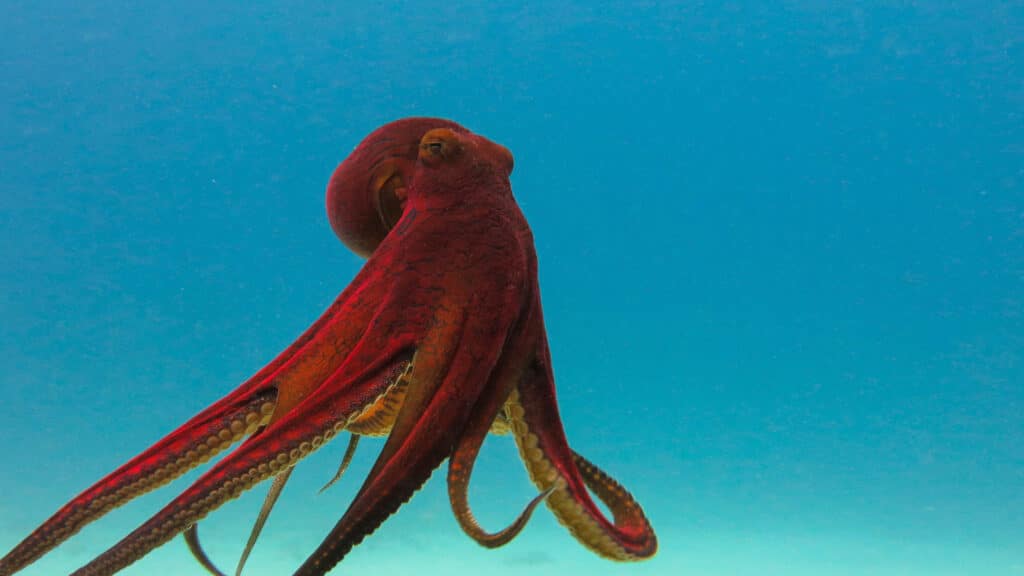
Conclusion
Our journey into the world of giant octopuses has revealed a complex and captivating story. While these creatures are undeniably powerful and possess remarkable abilities, it is clear that their reputation as dangerous sea monsters is largely a misconception. The evidence suggests that giant octopuses are not inherently aggressive towards humans and do not pose a significant threat.
Throughout our exploration, we have learned that giant octopuses are primarily solitary and elusive beings, preferring to avoid confrontations with larger species like humans. They rely on their exceptional camouflage skills and intelligence to evade potential threats rather than engaging in direct aggression.
Furthermore, documented interactions between humans and giant octopuses are relatively rare, and instances of unprovoked attacks are virtually nonexistent. Instead, these marine giants typically use their strength and agility to catch prey and defend themselves when necessary, rather than seeking out conflicts.
While it is essential to approach all wild animals with respect and caution, our findings suggest that giant octopuses are not the perilous sea monsters of popular imagination. Instead, they are magnificent and mysterious creatures deserving of our awe and protection as vital components of our oceans’ ecosystems. By dispelling myths and embracing a deeper understanding of these remarkable cephalopods, we can foster a greater appreciation for the wonders of our underwater world and work towards its preservation for generations to come.

